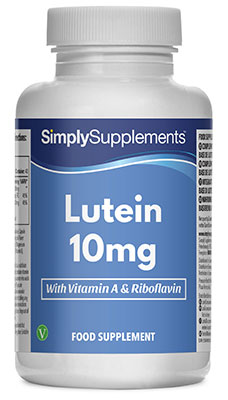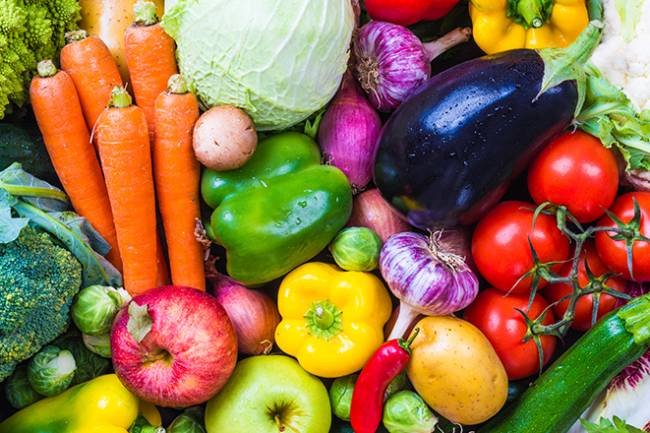Health Benefits of Lutein

Vision loss is a common concern as we age, but fruits and vegetables rich in certain carotenoids can help to maintain healthy vision. There are thought to be over 600 different types of carotenoid in the human body, but only two are concentrated in the macula of healthy eyes; lutein and zeaxanthin. These two are often taken in combination to prevent or reduce the progression of vision loss.
What is Lutein?
Lutein, pronounced “LOO-teen”, is a type of carotenoid that is naturally present in the macula of the eye. The macula is a small area in the eye that has the sharpest vision, and is responsible for colour vision, but it degenerates over time resulting in poor eyesight. It can also be found in lower concentrations in the retina, lens and optic nerve.
Lutein is not made in the body. Instead, it must be consumed in the diet. Plants produce lutein to protect against oxidative damage. As a result the consumption of plants - either directly or indirectly - provides lutein to support eye health. Popular sources include fruits and green leafy vegetables.
Lutein typically has a bright yellow/orange colour and is responsible for the colour of egg yolks. It is also found in a range of commonly-grown flowers, with most lutein supplements being derived from marigold flowers.
Benefits of Lutein
Due to its presence in the eye, much of the research to date has focused on the potential benefits of lutein for supporting optimal eye health.
Age-Related Macular Degeneration (AMD)
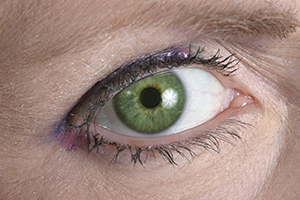 AMD is the leading cause of vision loss in the western world, but it is thought that lutein can help to slow the progression. Lutein strengthens eye tissue by blocking harmful blue light from entering the retina. In one study, for example, supplementing participants with just 30mg of lutein per day resulted in a 30-40% reduction in harmful blue light reaching the most vulnerable areas of the eye.
AMD is the leading cause of vision loss in the western world, but it is thought that lutein can help to slow the progression. Lutein strengthens eye tissue by blocking harmful blue light from entering the retina. In one study, for example, supplementing participants with just 30mg of lutein per day resulted in a 30-40% reduction in harmful blue light reaching the most vulnerable areas of the eye.
It is also believed to have antioxidant properties, helping to protect the eye from free radical damage.
Studies published in Nutrition and Metabolism have found that supplementation with lutein does increase the optical density of the macular pigment in eyes of the majority of human subjects.
Another study published in the American Journal of Epidemiology, Ophthalmology and Archives of Ophthalmology found that people with diets higher in lutein had lower incidences of age-related macular degeneration.
A separate study showed that a combination of lutein, zeaxanthin and omega 3 oils helped to improve visual acuity performance, particularly when taken at high doses above 20mg per day.
A follow-up study also showed that concentrations of plasma lutein reduced after supplementation ceased.
Cataracts
Cataracts are caused by proteins that build up on the lens of the eye, and over time can interfere with vision. Research suggests that higher intakes of lutein may help to lower the risk of cataracts, particularly nuclear cataracts (those in the centre of the lens).
Eye Fatigue
If you spend all day sitting in front of a computer, TV and smartphone, then you have probably experienced eye fatigue and glare sensitivity at some point. Evidence shows that increasing lutein intake in normal-sighted adults can reduce glare sensitivity and sharpen vision.
Atherosclerosis
Lutein acts as an antioxidant and may potentially help to reduce the oxidation of blood fats, such as cholesterol and triglycerides. This results in fewer blood fats sticking to the inside of artery walls, which reduces the risk of atherosclerosis and heart disease.
Skin Protection
A combination of lutein and zeaxanthin (both oral and topical application) has been shown to have a four-fold increase in the skin’s protection against UV radiation-induced skin damage. After the trial, subjects who had been showing signs of premature ageing saw surface lipids increase by 63%.
Sources of Lutein in the Diet
Due to the interest in lutein potentially reducing the impacts of eye degeneration great strides have been made to identify those foods with the highest concentrations.
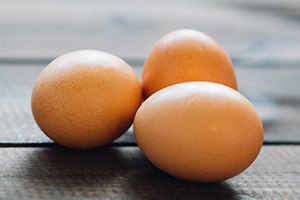 Foods containing high levels of lutein include:
Foods containing high levels of lutein include:
- Brightly coloured fruits and vegetables such as carrots and peppers
- Leafy greens such as kale, lettuce and broccoli
- Egg yolk
- Maize / corn
As both the concentration and bioavailability (the amount your body can access) of dietary lutein vary in natural foods, scientists recommend consuming a range of these foods.
In the past, some concerns have been raised about consuming large volumes of eggs, due to the high levels of cholesterol they are known to contain. As a result, whilst a varied diet rich in fruits and vegetables is important, some people also opt to maximise their intake by taking a lutein supplement. Most lutein supplements are sourced from the marigold plant (calendula variety). It is the plant's rich lutein and zeaxanthin content that gives the petals their bright yellow and orange colours.
How Much Lutein Should I Take?
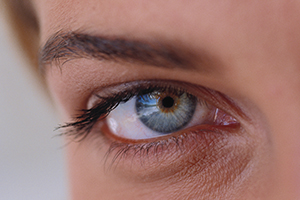 The body cannot produce lutein, and so it needs to be consumed through the diet. Currently, there is no set recommended daily intake for lutein, however many experts advise taking a minimum of 6 milligrams (mg) of lutein per day in order to receive the beneficial effects. Other experts advise strengths above 30 mg per day.
The body cannot produce lutein, and so it needs to be consumed through the diet. Currently, there is no set recommended daily intake for lutein, however many experts advise taking a minimum of 6 milligrams (mg) of lutein per day in order to receive the beneficial effects. Other experts advise strengths above 30 mg per day.
Certain groups of people may be more at risk of age-related vision loss, and so may benefit from higher intakes of lutein. These groups include smokers, people with lighter iris colour, and people with family history of eye disease. Studies have shown that the concentration of lutein in the macula can be increased through lutein supplementation.
Lutein Side Effects
Lutein has no known side effects, toxicity or drug interactions. In rare cases, people who consume high levels of carotene-rich carrots or yellow fruits can develop a yellowing of the skin called carotenemia. Although this is completely harmless, it can look distressing.
Summary
- Lutein is a naturally-occurring chemical made by plants. The human body does not produce it, so it must be consumed in the diet either through food or supplementation.
- Lutein is believed to play a number of important health benefits in the body, most notably in the eye. As the macula degenerates, so eyesight can worsen. Experts believe that maintaining suitable lutein levels in the body can slow this decline, maintaining eye health for longer.
- Rich sources of lutein include egg yolk, leafy vegetables and yellow, orange or red fruits and vegetables. Consuming fruits and vegetables of varying colours can help to ensure your body obtains enough lutein.
- Lutein supplements are normally derived from the orange flowers of the marigold plant.
Shop for Lutein Supplements here.
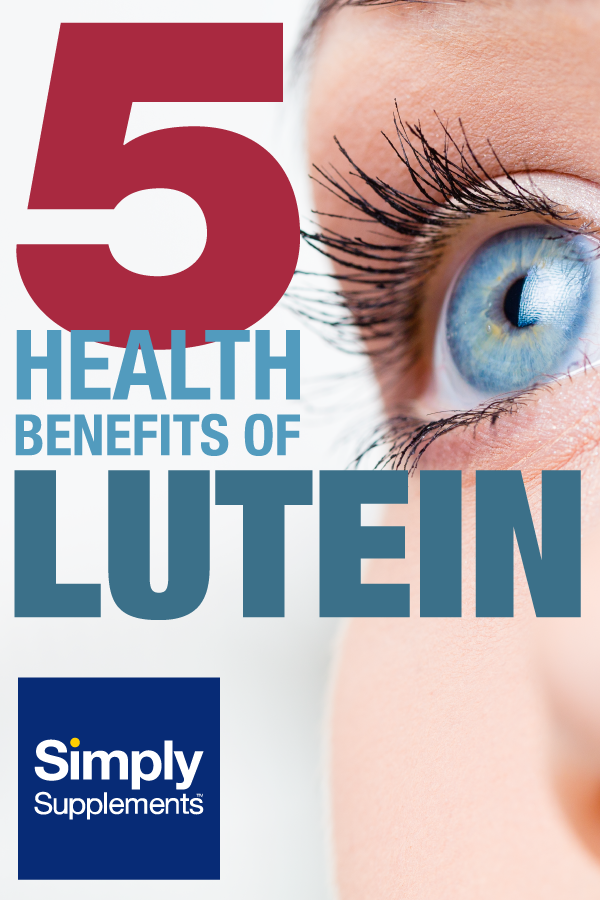
Sources:
http://bjo.bmj.com/content/82/8/907.short
http://www.annualreviews.org/doi/abs/10.1146/annurev.nutr.23.011702.073307
http://www.sciencedirect.com/science/article/pii/S0003986100921714
http://www.sciencedirect.com/science/article/pii/S0014483597903092
http://europepmc.org/abstract/med/9042242
http://jn.nutrition.org/content/132/3/518S.short
http://circ.ahajournals.org/content/103/24/2922.short
http://jn.nutrition.org/content/133/4/992.short
http://ajcn.nutrition.org/content/70/2/247.short
http://www.sciencedirect.com/science/article/pii/S0014483500908704
https://www.cambridge.org/core/journals/british-journal-of-nutrition/article/nutritional-and-clinical-relevance-of-lutein-in-human-health/27F42056D523DC78A8EE6135D500B338

 Nicole
Nicole 



